"While dictators rage and statesmen talk, all Europe dances — to The Lambeth Walk."
Thursday, 28 May 2009
More on Criminality in the Netherlands
Further to my post earlier this week about Moroccan criminality and delinquency in major Dutch cities, I have found more information which is relevant to the subject.
Yesterday Dutch News reported that an Amsterdam court had rejected a request by the public prosecutors office (OM) to automatically double sentences for violence against police officers.
On Tuesday seventeen youths appeared in court for engaging in acts of violence towards civil servants. However, the judges felt that unlike youth workers, paramedics and the fire brigade, it is the job of the police to deal with violence and face aggression.
Police officers said that the ruling sends out the wrong message. They are tired of being blamed by the public for their lack of action in certain neighbourhoods and the soaring crime rate. The softly softly and ineffective approaches of the police in some areas must be blamed squarely on the politicians, said the Works Council for police in Gouda:
The growing criticism in society of the alleged soft methods of the police should be directed at politicians rather than police personnel. "We are just doing our work," said a statement published yesterday by the Works Council (OR) of the Gouda police region.
Gouda has been in the news frequently since last year as a sort of 'free state' for Moroccan criminals, some no older than 9. The OR (a sort of internal trade union within an organisation) of the Gouda police acknowledges the problem, but is fed up with being blamed.
"People suggest that we are lazy, that we take no action," OR chairman Gerrit-Willem Hoek declared on behalf of the officers. "But we are merely putting into practice what those in power have decided. We do not decide what fines are imposed, we just do our work. The fact that this is our job does not give anyone the right to use us as a boxing ball".
Hoek points the finger to politicians and the Public Prosecutor's Office (OM). They decide how to deal with troublemakers, not the police. He also suggested that violence against the police is beginning to occur on an unacceptable scale. "We will no longer put up with violence against our colleagues and we will not put up with our performance being constantly criticised."
The Christian Democrats have vowed to look into heftier prison sentences and sanctions for those who are violent towards the police.
They fail to look at root causes, however. The way that the police deal with criminals, particularly the violent groups of youths of immigrant descent who plague certain areas, has changed. Once upon a time the onus was on arrest, punishment and preventing escalation.
Now, it's about dialogue and being seen to do and say the right things. The youths, often from far stricter societies and backgrounds, feel invincible. Even things which are generally regarded as quite serious seem only to merit counselling or community punishments.
The imbues them with no respect for the Dutch state and authorities:
Chairman Gerrit van de Kamp of police union ACP wants the RHC to instruct the police to take tougher action instead of have them opt for dialogue and avoiding escalation. "In the past, the police simply tackled groups of young troublemakers with their truncheons. This is apparently no longer in line with our system," he said cynically.
What sort of sentences prolific and violent criminals receive is obviously very important.
What's more important, however, is recognising the source of these problems to begin with. The Netherlands used to be a very safe country, and in many respects it is not now - why?
Corine de Ruiter, professor of forensic psychology in Maastricht and her colleague Kim van Oorsouw think they have the answer.
They think - take a deep breath and make sure you are seated - that Islam might be a contributing factor to this delinquent behaviour, found primarily in Moroccan and Turkish males.
Here is the full report, translated by Islam in Europe's Esther:
The Dutch justice ministry is investigating which approach to youth criminality works. Using this information, the cabinet will deal with the problematics of Moroccan youth.
Islam is possibly one of the causes of delinquent behavior of Moroccan youth, suggests Corine de Ruiter, professor of forensic psychology in Maastricht who - together with others - mapped out for the justice ministry ways to deal with criminal Moroccan youth. According to De Ruiter, Moroccan (and Turkish) youth are 'backwards in their moral development'.
This backwardness is one of the factors which can cause criminal behaviour: it's been scientifically shown that delinquents often have decreased moral functions, less emphatic abilities and less aggression controls. This less well developed 'moral reasoning' of Moroccan and Turkish youth is explained, according to De Ruiter and her coworker Kim van Oorsouw, by the Islamic background of these minority groups.
"In Islam the emphasis is on obedience and respect for the parents. Individualism and independence are less important - and these are exactly the qualities which can bring moral development to a higher level,' according to the co-authors of the knowledge base for dealing with criminal Moroccan youth.
Children in Dutch families grow up with a 'democratic negotiation style' and much consultation with the parents, where they learn to decide. Islamic children often grow up in a family structure in which they 'must only follow orders'. There is yet no empiric evidence that this goes together with antisocial or criminal behavior, but the authors think it's 'plausible' that it goes like that.
-----------------
Moroccan youth deal with different background factors than Turkish youth. Morocco is less industrialized and less democratic than Turkey and in Morocco women have less political rights, which goes together with illiteracy, to enumerate some differences.
Accordingto the researchers programmes such as the Glenn Mills school for Moroccan youth are also 'not effective in increasing moral maturity, since repression is often already the dominant upbringing style". They see much more benefit in teaching a different style of thinking. Studies abroad show that this approach actually leads to less recidivism. It is also known that Moroccans suffer more than average from schizophrenia. This might well have to do with the frequent cousin marriages, according to researcher Trees Pels, who also worked on the report.
The knowledge base is the basis of the 'Moroccan policy' that the cabinet is now developing. The WODC (Research and Documentation Centre) of the Justice Ministry asked various researchers to write down what is already known and established about the approach of youth crime and antisocial behavior in general, and of immigrant/Moroccan youth in particular.
They are looking for which interventions and regulations have been shown to really work. There are only a few, conclude the researchers. What is available as far as scientific evidence is based mostly on American studies; research of the workings of (foreign) interventions in the Dutch context is highly necessary, argue the authors. Thus it is unknown whether youth in justice youth institutes who don't show problem behaviour any more also keep to it after their release. Probably not, think the researchers.
--------
An important recommendation from the report is that schools should play a bigger role in fighting nuisances and criminality of Moroccan youth. Immigrant parents turn to the (psychological) social worker slower than ethnic Dutch parents, also due to a cultural taboo. Informing the parents is therefore of great importance, say the authors of the knowledge base.
The researchers recommend that schools (school doctors, youth health care, teachers) play a more important role in observing. Teachers, for example, could be encouraged to screen for behavior problems in their class. There's a test with simple questions ('can the child sit still? Does he lie often?') which can signal problem behavior and behavior disorders very early.
When immigrant parents are referred to social workers by the school it can help overcome the hurdle, argue the researchers. It would be better if the social help would be offered at or via the school. That would be seen as a smaller hurdle and less stigmatizing by immigrant parents, but also by parents with a low social-economic status, than when they must go on their own to the youth social care, according to the writers of the knowledge base.
The expectation is that if parents find their way more easily to the volunteer social workers, immigrant over-representation in the non-volunteer, more serious help (youth care) will also decrease.
------------
The increase of 'social binding' among ethnic minorities can also work as a 'buffer against criminal behavior', the researchers, who worked for WODC, think. The social binding can be reinforced by strengthening the social cohesion within the (Moroccan) families.
"Parent training can already be done during the elementary school period. Moroccan parents appear to have problems recognizing their child shows difficult manageability behavior." Teachers do recognize this behaviour, a reason to already offer 'preventive intervention' in school.
Other findings of the researchers: the creation of places to hang out for at-risk youth often has a contrary effect; setting up a curfew is not effective in fighting crime, but improving street lighting is. More random 'blue' on the street is not beneficial, but directing extra patrols at certain times and areas works demonstrably well.
Obviously, there's a lot of flowery language and high-minded notions there. But, the scales are beginning to fall, ever so slowly, from the eyes of the multicultural faithful.
They may not be coming to the right conclusions (my response to the above is to ask why the Dutch need violent colonists from an acknowledged backward culture in the first place), but they are beginning to ask the right questions.
They are also beginning to realise that simply throwing money at the problem and accusing everyone who even thinks about highlighting these problems of racism is a failed strategy.
The full report is available in Dutch here.
Yesterday Dutch News reported that an Amsterdam court had rejected a request by the public prosecutors office (OM) to automatically double sentences for violence against police officers.
On Tuesday seventeen youths appeared in court for engaging in acts of violence towards civil servants. However, the judges felt that unlike youth workers, paramedics and the fire brigade, it is the job of the police to deal with violence and face aggression.
Police officers said that the ruling sends out the wrong message. They are tired of being blamed by the public for their lack of action in certain neighbourhoods and the soaring crime rate. The softly softly and ineffective approaches of the police in some areas must be blamed squarely on the politicians, said the Works Council for police in Gouda:
The growing criticism in society of the alleged soft methods of the police should be directed at politicians rather than police personnel. "We are just doing our work," said a statement published yesterday by the Works Council (OR) of the Gouda police region.
Gouda has been in the news frequently since last year as a sort of 'free state' for Moroccan criminals, some no older than 9. The OR (a sort of internal trade union within an organisation) of the Gouda police acknowledges the problem, but is fed up with being blamed.
"People suggest that we are lazy, that we take no action," OR chairman Gerrit-Willem Hoek declared on behalf of the officers. "But we are merely putting into practice what those in power have decided. We do not decide what fines are imposed, we just do our work. The fact that this is our job does not give anyone the right to use us as a boxing ball".
Hoek points the finger to politicians and the Public Prosecutor's Office (OM). They decide how to deal with troublemakers, not the police. He also suggested that violence against the police is beginning to occur on an unacceptable scale. "We will no longer put up with violence against our colleagues and we will not put up with our performance being constantly criticised."
The Christian Democrats have vowed to look into heftier prison sentences and sanctions for those who are violent towards the police.
They fail to look at root causes, however. The way that the police deal with criminals, particularly the violent groups of youths of immigrant descent who plague certain areas, has changed. Once upon a time the onus was on arrest, punishment and preventing escalation.
Now, it's about dialogue and being seen to do and say the right things. The youths, often from far stricter societies and backgrounds, feel invincible. Even things which are generally regarded as quite serious seem only to merit counselling or community punishments.
The imbues them with no respect for the Dutch state and authorities:
Chairman Gerrit van de Kamp of police union ACP wants the RHC to instruct the police to take tougher action instead of have them opt for dialogue and avoiding escalation. "In the past, the police simply tackled groups of young troublemakers with their truncheons. This is apparently no longer in line with our system," he said cynically.
What sort of sentences prolific and violent criminals receive is obviously very important.
What's more important, however, is recognising the source of these problems to begin with. The Netherlands used to be a very safe country, and in many respects it is not now - why?
Corine de Ruiter, professor of forensic psychology in Maastricht and her colleague Kim van Oorsouw think they have the answer.
They think - take a deep breath and make sure you are seated - that Islam might be a contributing factor to this delinquent behaviour, found primarily in Moroccan and Turkish males.
Here is the full report, translated by Islam in Europe's Esther:
The Dutch justice ministry is investigating which approach to youth criminality works. Using this information, the cabinet will deal with the problematics of Moroccan youth.
Islam is possibly one of the causes of delinquent behavior of Moroccan youth, suggests Corine de Ruiter, professor of forensic psychology in Maastricht who - together with others - mapped out for the justice ministry ways to deal with criminal Moroccan youth. According to De Ruiter, Moroccan (and Turkish) youth are 'backwards in their moral development'.
This backwardness is one of the factors which can cause criminal behaviour: it's been scientifically shown that delinquents often have decreased moral functions, less emphatic abilities and less aggression controls. This less well developed 'moral reasoning' of Moroccan and Turkish youth is explained, according to De Ruiter and her coworker Kim van Oorsouw, by the Islamic background of these minority groups.
"In Islam the emphasis is on obedience and respect for the parents. Individualism and independence are less important - and these are exactly the qualities which can bring moral development to a higher level,' according to the co-authors of the knowledge base for dealing with criminal Moroccan youth.
Children in Dutch families grow up with a 'democratic negotiation style' and much consultation with the parents, where they learn to decide. Islamic children often grow up in a family structure in which they 'must only follow orders'. There is yet no empiric evidence that this goes together with antisocial or criminal behavior, but the authors think it's 'plausible' that it goes like that.
-----------------
Moroccan youth deal with different background factors than Turkish youth. Morocco is less industrialized and less democratic than Turkey and in Morocco women have less political rights, which goes together with illiteracy, to enumerate some differences.
Accordingto the researchers programmes such as the Glenn Mills school for Moroccan youth are also 'not effective in increasing moral maturity, since repression is often already the dominant upbringing style". They see much more benefit in teaching a different style of thinking. Studies abroad show that this approach actually leads to less recidivism. It is also known that Moroccans suffer more than average from schizophrenia. This might well have to do with the frequent cousin marriages, according to researcher Trees Pels, who also worked on the report.
The knowledge base is the basis of the 'Moroccan policy' that the cabinet is now developing. The WODC (Research and Documentation Centre) of the Justice Ministry asked various researchers to write down what is already known and established about the approach of youth crime and antisocial behavior in general, and of immigrant/Moroccan youth in particular.
They are looking for which interventions and regulations have been shown to really work. There are only a few, conclude the researchers. What is available as far as scientific evidence is based mostly on American studies; research of the workings of (foreign) interventions in the Dutch context is highly necessary, argue the authors. Thus it is unknown whether youth in justice youth institutes who don't show problem behaviour any more also keep to it after their release. Probably not, think the researchers.
--------
An important recommendation from the report is that schools should play a bigger role in fighting nuisances and criminality of Moroccan youth. Immigrant parents turn to the (psychological) social worker slower than ethnic Dutch parents, also due to a cultural taboo. Informing the parents is therefore of great importance, say the authors of the knowledge base.
The researchers recommend that schools (school doctors, youth health care, teachers) play a more important role in observing. Teachers, for example, could be encouraged to screen for behavior problems in their class. There's a test with simple questions ('can the child sit still? Does he lie often?') which can signal problem behavior and behavior disorders very early.
When immigrant parents are referred to social workers by the school it can help overcome the hurdle, argue the researchers. It would be better if the social help would be offered at or via the school. That would be seen as a smaller hurdle and less stigmatizing by immigrant parents, but also by parents with a low social-economic status, than when they must go on their own to the youth social care, according to the writers of the knowledge base.
The expectation is that if parents find their way more easily to the volunteer social workers, immigrant over-representation in the non-volunteer, more serious help (youth care) will also decrease.
------------
The increase of 'social binding' among ethnic minorities can also work as a 'buffer against criminal behavior', the researchers, who worked for WODC, think. The social binding can be reinforced by strengthening the social cohesion within the (Moroccan) families.
"Parent training can already be done during the elementary school period. Moroccan parents appear to have problems recognizing their child shows difficult manageability behavior." Teachers do recognize this behaviour, a reason to already offer 'preventive intervention' in school.
Other findings of the researchers: the creation of places to hang out for at-risk youth often has a contrary effect; setting up a curfew is not effective in fighting crime, but improving street lighting is. More random 'blue' on the street is not beneficial, but directing extra patrols at certain times and areas works demonstrably well.
Obviously, there's a lot of flowery language and high-minded notions there. But, the scales are beginning to fall, ever so slowly, from the eyes of the multicultural faithful.
They may not be coming to the right conclusions (my response to the above is to ask why the Dutch need violent colonists from an acknowledged backward culture in the first place), but they are beginning to ask the right questions.
They are also beginning to realise that simply throwing money at the problem and accusing everyone who even thinks about highlighting these problems of racism is a failed strategy.
The full report is available in Dutch here.
Subscribe to:
Post Comments (Atom)
.jpg)





















































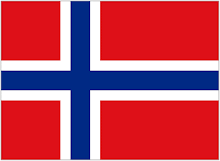
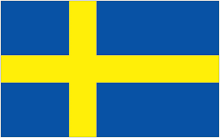






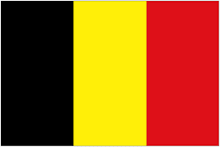

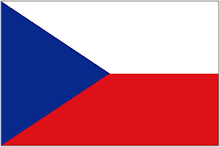











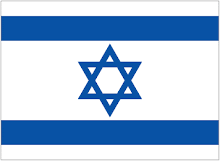




1 comment:
What a shocking misreading of the facts! Ruiter and van Oorsouw have completely misunderstood the facts before them on the ground. It is so very plain to anyone who cares to look that the source of the problems is actually creeping Methodism coming into conflict with the traditional peaceful Dutch Reformed Church of Holland. (I have to confess my own violent background; I was once a Methodist myself before I saw the light.) But to accuse the Religion of Pieces, why this is a scandal!
How will politically correct Dutch society deal with this shock? Can they stand such an accusation, even if supported with overwhelming evidence? The blow to the liberal psyche will be severe. I do hope that other nations are standing by with aid in the form of social workers and shrinks for the entire Dutch nation. (It is only a small nation, after all.)
Post a Comment